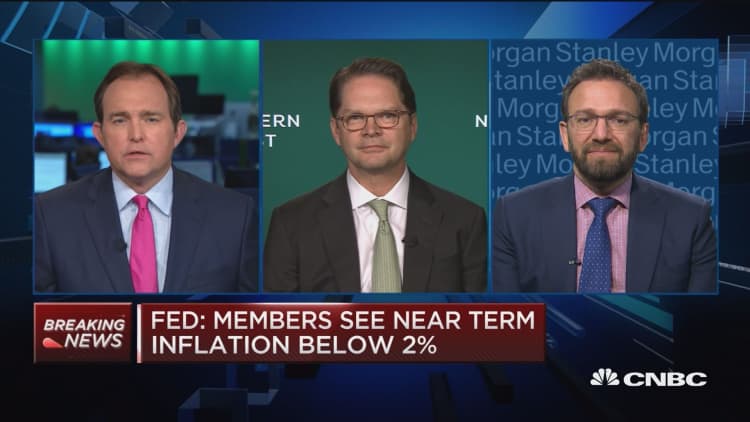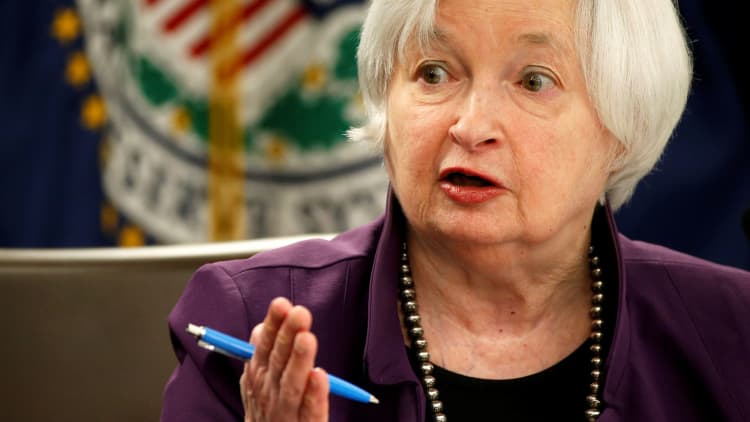
It's about time for the Federal Reserve to start reducing its balance sheet because, despite rate increases, financial conditions have been getting easier, Morgan Stanley's Jim Caron told CNBC on Wednesday.
"Equities have been going higher. Credit spreads have been getting tighter. Rates have stayed low. They're running into some problems right here, which is correlation risk," he said in an interview with "Power Lunch."
And if bonds and stocks continue to trade in tandem "because of excess accommodation, this could create a bigger problem down the road when you get negative correlation," said Caron, the firm's senior fixed income portfolio manager for asset management.
However, he believes the Fed is taking these risks into account.
The Federal Reserve last hiked rates in June. Minutes released on Wednesday from that meeting showed there was some concern that keeping policy loose was posing increasing risks to financial stability and the economy.
The central bank also outlined a plan at the meeting to reduce its $4.5 trillion balance sheet, although it gave no timetable on when it would begin.
Jim McDonald, chief investment strategist at Northern Trust Asset Management, believes the market is ready for the Fed to start trimming its balance sheet.
He was also reassured by the central bank's assessment of the inflation picture. During the June meeting, officials noted the muted inflation levels, which they consider to be temporary and likely to rise over the long run to a targeted level of 2 percent.
"I would not have wanted to hear them solely dismiss the most recent numbers as soft with complete confidence that we're going to see a rebound," he told "Power Lunch."
"The reality is inflation's been stubbornly low for a very long period of time. The risk is the Fed makes a mistake raising rates more than they really need to because inflation isn't a big problem," he added.
In fact, McDonald thinks concerns over inflation may change the Fed's path of interest-rate hikes.
"They are laying out the risk that it may not be wholly transitory. So the fact that they put those caveats in while expressing comfort that things will go back to normalcy does give me some confidence that they think there's a chance we're in a different environment," he said.
— CNBC's Jeff Cox contributed to this report.
Watch: Fed minutes: General support for gradual rate hikes



